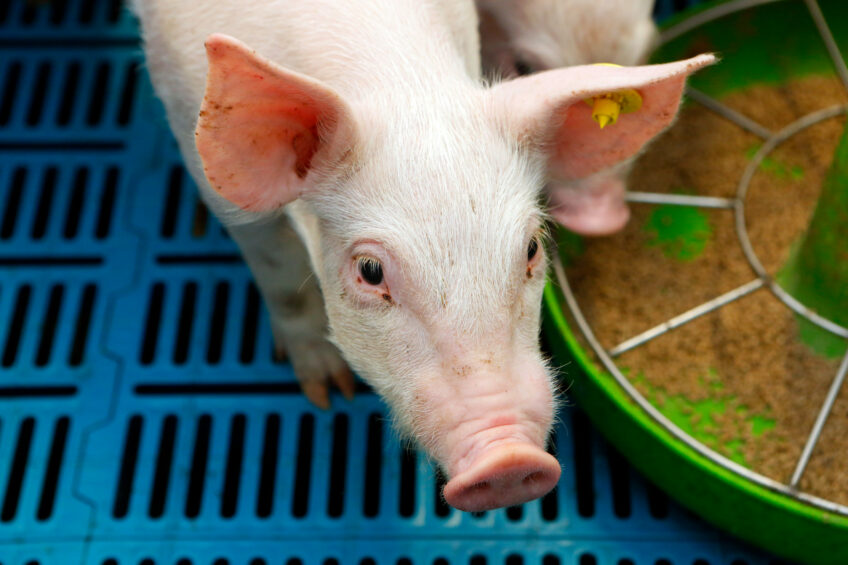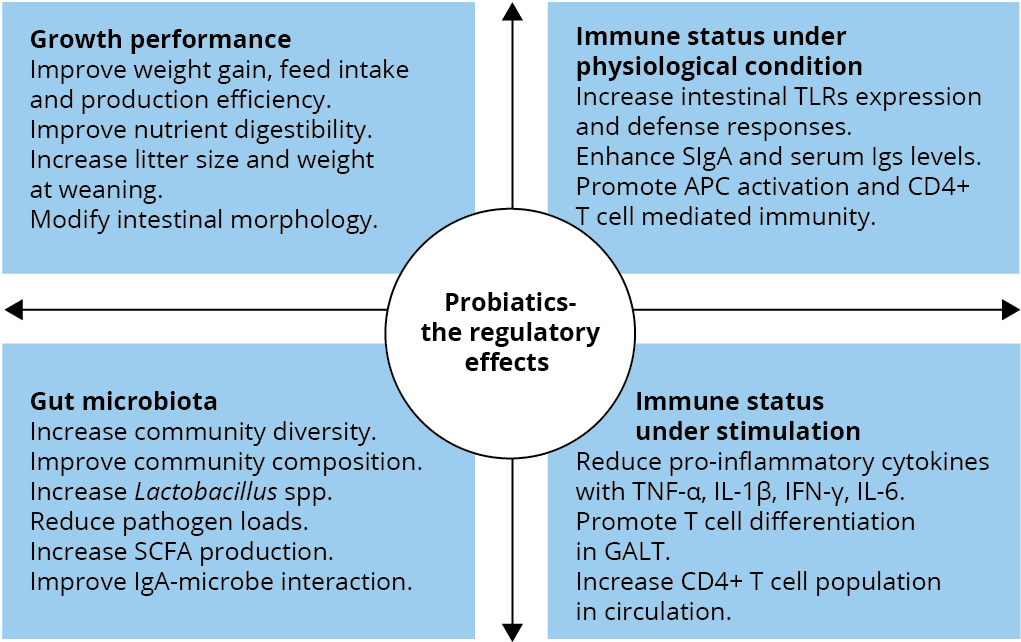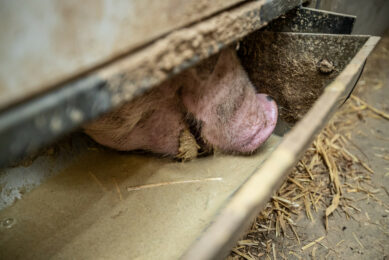Understanding the alternatives to using veterinary drugs

Antibiotics have been used as growth enhancers to minimise diarrhoea and pathogenic opportunistic infections and maximise the performance of pigs. However, with the emergence and growth of resistant bacteria caused by in-feed use of antibiotics, finding alternatives remains a topical issue. Based on recent research work, this report investigates some of the alternatives.
SUSTAINABILITY & WELFARE SPECIAL 2024 – read all articles
Concerns arise as low doses of repeated antibiotic administration in farming could promote antimicrobial resistance genes into pathogenic bacteria, ultimately causing drug-resistant infections in humans. These antimicrobial agents are reported to indirectly generate resistance by exerting selective pressure on a given bacterial population, favouring the emergence and growth of resistant bacteria. On the other hand, the ban on in-feed antibiotic usage has unintended impacts on pig production, such as increased morbidity and mortality of infectious diseases and high economic losses. Therefore, finding antibiotic alternatives to manage animal health while maintaining animal performance is of great importance to pig production.
Probiotics
Probiotics are live microorganisms that confer health benefits on the host, such as restoring the gut microbiota homeostasis and improving the health of the animal. They are superior to antibiotics as they are safe for long-term administration and do not cause severe side effects. However, as opposed to the broad spectrum of antibiotics, their effects are often strain- or species-specific.
Some of the common probiotics including lactic acid bacteria, Bacillus (e.g., B. subtilis), Enterococcus (e.g., E. faecium), Streptococcus (e.g., S. infantarius), Pediococcus (e.g., P. acidilactici), some butyrate-producing bacteria, yeast, Aspergillus, and Trichoderma. Studies show that Lactobacillus species have the highest potential to replace antibiotics in pigs. One of the key effects of Lactobacillus-based probiotics in pigs is the modification of humoral immune responses through the promotion of immunoglobulin A (IgA) production and suppression of pro-inflammatory cytokines.
Probiotics promote T cell differentiation in the gut-associated lymphoid tissues (GALT), which are the primary inductive site of antigen recognition, elimination, and antigen-specific B and T cell reactions. Probiotics also promote the activation of antigen-presenting cells (APCs). As an influence on gut microbiota, they promote the production of short-chain fatty acids (SCFA). Figure 1 presents a summary of the positive impacts of probiotics on pigs.
Figure 1 — Schematic illustration of the regulatory effects of probiotics in pigs.

Prebiotics
Prebiotics are substrates that promote the growth and metabolism of specific groups of commensal bacteria, conferring health benefits to the host. Common prebiotics in pigs are dietary fibre fractions and non-digestible oligosaccharides derived from plants. They include arabinoxylans, pectin, xyloglucans, resistant starch, fructooligosaccharides, lactulose, raffinose, maltodextrin, mannitol, galactooligosaccharide and inulin.
Taking the prebiotic inulin for example, it is proven to increase the population of probiotic Lactobacillus spp. and Bifidobacterium spp. and promote lactic acids and SCFA production with a reduced pH in the intestine, thus suppressing pathogenic bacteria growth. Another prebiotic polysaccharide pectin has been shown to improve gut health and growth of weaned piglets by regulating microbiota and bile acid metabolism. In addition to SCFA promotion, prebiotics also block receptor sites for bacterial adhesion and are involved in immunomodulation.
Phytobiotics
Phytobiotics, also known as phytochemicals or phytogenics are diverse subset of plant-derived bioactive compounds. Phytobiotics are reported to stimulate appetite, and endogenous secretions such as enzymes, and have antimicrobial, antioxidant, coccidiostatic, or anthelmintic activities in monogastric animals. In pigs, phytochemicals also have the potential to reduce tissue damage mediated by mycotoxins by regulating immune function, improving the abundance of intestinal flora, and decreasing oxidative stress.
Essential oils are one example well-recognised for their broad-spectrum antimicrobial activities against pathogenic bacteria as they damage the cell walls. Other phytobiotics include tannins, saponin herbs, and alkaloids which also have antimicrobial properties. For instance, tannin extracts can inhibit bacterial growth by iron deprivation and affecting cellular membrane enzymes while alkaloids disrupt bacterial DNA synthesis. However, according to the researchers, the immuno-modulatory effects of most phytobiotics in pigs are mostly explained by their antioxidant activities; therefore, to fully unlock their potential as antibiotic alternatives in pig production, future studies should focus more on dissecting changes in various immune components of gut-associated lymphoid tissues (GALT) in response to individual phytobiotics. They also recommended a closer analysis of the potential toxic effects, interaction with other dietary components and inclusion costs of the different phytobiotic additives in pig diets.
Antimicrobial peptides
Antimicrobial peptides (AMPs) are a diverse class of naturally occurring defence molecules that are produced by many multicellular organisms. They are embodied with active anti-bacterial, anti-fungal, and anti-viral properties. Reports show positively charged AMPs can kill microorganisms by selectively binding to their membranes through electrostatic interactions, disrupting their integrity and affecting intracellular functions. In addition, AMPs exhibit growth-promoting ability and modulate host immunity, making them attractive antibiotic substitutes in pigs. Lactoferrin is one such AMP that significantly increases immunoglobulins (IgA and IgG) and enhances intestinal integrity while reducing mortality in piglets. Antimicrobial peptides are generally attracting a lot of attention in the animal research industry but are still in their early stages for large scale application.
Organic acids
Organic acids such as formic, propionic, butyric, acetic, lactic, sorbic, phosphoric, citric, benzoic, and fumaric acids have potential benefits on gut health and growth performance in animals. Although they have different acidification capacities, they have antimicrobial activities capable of modulating the gut microbiota.
Besides the individual organic acids, the use of organic acid blends can be more beneficial. In a piglet study, researchers evaluated the effects of formic and propionic acid blend added to pig feed and observed increased faecal consistency and reduced occurrence of enteric problems; the blend alleviated the inflammatory response and reduced diarrhoea incidence in piglets challenged with enterotoxigenic Escherichia coli.
Another important aspect to consider when supplementing organic acids is the form in which they are included in diets. For example, butyric acid glycerides can be included in the free or protected form or as monobutyrin and tributyrin forms. In a recent study published in the journal Research in Veterinary Science, researchers evaluated the supplementation of this acid in the form of tributyrin and found superior improvements in growth performance, feed conversion, and antioxidant and microbial modulation benefits compared to other butyric acid forms.
In conclusion, the data from various studies discussed in this article show progress in developing alternatives to antibiotics in pig production. It is suggested to have a closer look into the alternatives pertaining the cost-effectiveness, safety issues and factors that affect the efficacy.
References are available on request.






